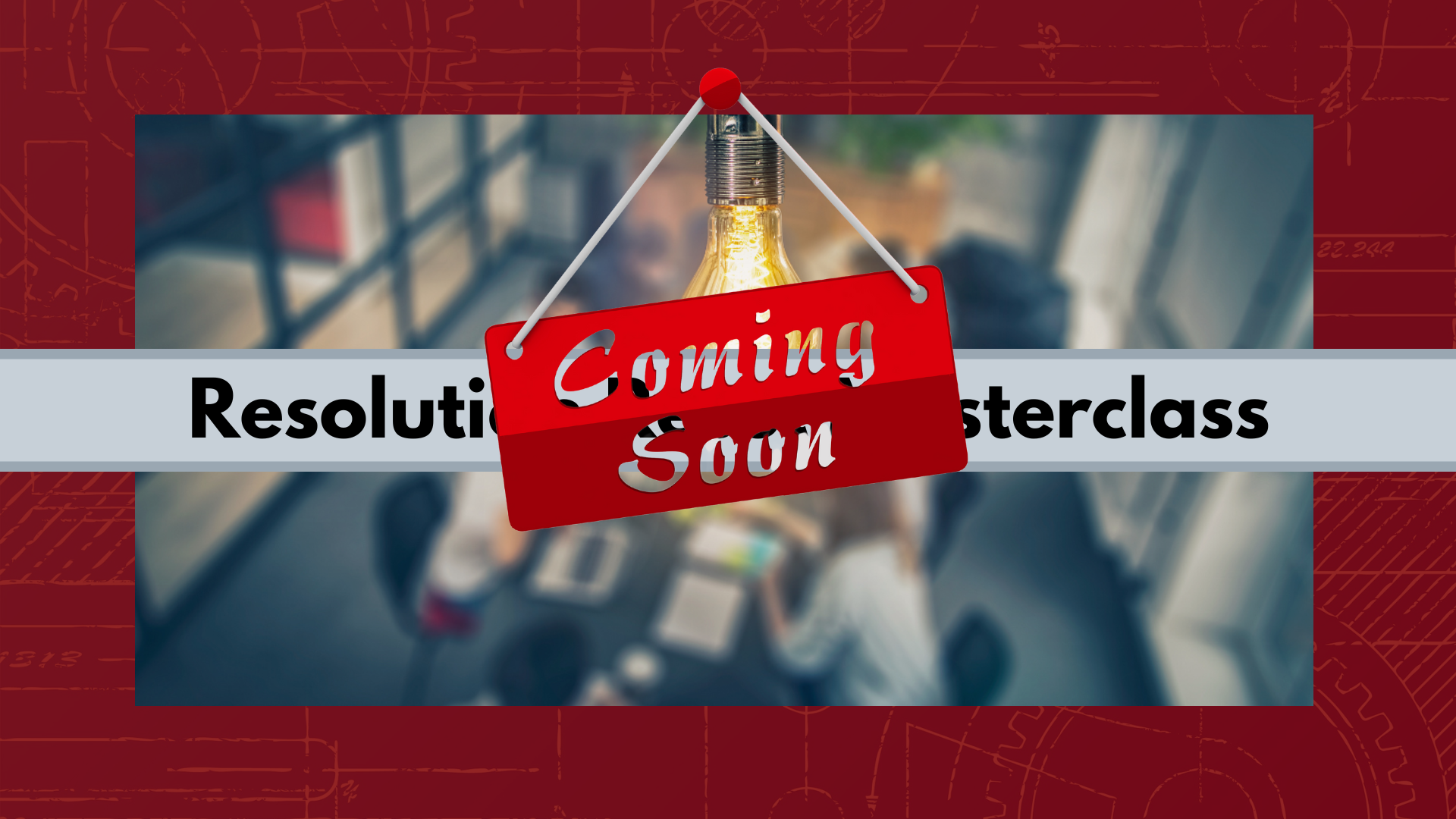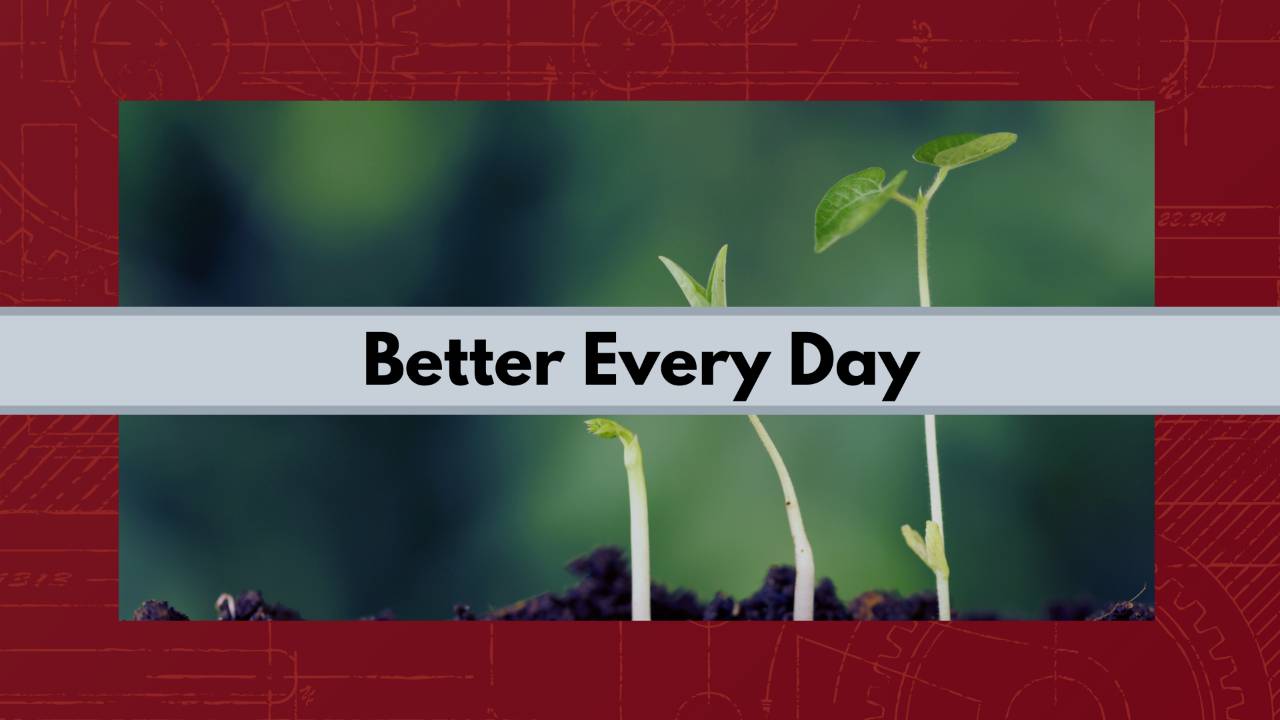Better Every Day
Your 52-Week Journey for Peak Performance
Whether you're an entrepreneur, an artist, a student, or someone just passionate about lifelong learning and self-improvement, "Better Every Day" is curated to fuel your fire. If you believe in the power of consistency and value the gratification that comes from personal growth, this journey is for you.
|
In week 1 of this program, I made the argument that self-awareness was the first foundational skill for peak performance. Well, if self-awareness is the most important, then mindset is a very close second. I’m sure many of you have heard the term mindset before as it has been in the media a lot and is very “on trend”. Any time I give a workshop on mindset, and I ask the participants to define it, I get a wide variety of answers. So, let’s define it first so we are all on the same page with what it means, at least how we’re talking about it here.
“Mindset is your collection of thoughts and beliefs that shape the stories you tell yourself about what you are and are not capable of.” Henry Ford is famous for saying, “Whether you think you can or think you can’t, you’re right.” In my opinion - This is a perfect illustration of the power of mindset. The stories that we tell ourselves about what we are capable of will ultimately dictate what you are able to accomplish.
I’m wondering if you are familiar with the story behind the 4-minute mile being broken. A lot of people know that it was done, but don’t know what makes this story another great illustration about the power of belief systems and how they can impact our potential. For as long as running records were kept, no one believed or was able to run a mile in under 4 minutes. That is, until Roger Bannister accomplished this in 1954. What is interesting is that once he broke this seemingly impossible barrier and made it possible, his record only last 46 days. It has been broken over a 1000 times since then and is now the standard for male professional middle-distance runners. So, think about this for a minute. No one thought it could be done. It wasn’t done. Then as soon as it was shown to be possible, and people’s believe systems changed, the record was broken in less than 2 months.
So I pose this question to you now- are there any mental barriers or stories you have told yourself about what is possible or what you are capable of achieving? I’d like you think on that question for a bit.
Now, we can’t talk about mindset without talking about Carol Dweck’s work on growth and fixed mindsets. Carol Dweck is a researcher out of Stanford, who has been studying the impact that mindset has on performance for decades. She has come up with two very important findings.
Finding One
The first is that the most important factor in achieving success, in any area of our lives, is our capacity to learn and adapt.
Finding Two
The second finding is that the key to becoming a great learner is our belief about learning (Dweck, 2006).
Within her research she identified two different mindsets: a growth mindset and a fixed mindset, and each has very specific characteristics.
Individuals with a fixed mindset believe that ability and intelligence is static- or fixed. So, you’re either smart or you’re not. You’re artistically inclined or you’re not. In comparison, individuals with a growth mindset believe that ability and intelligence can be developed. They believe that if they’re not good at something, it’s not because they’re innately bad, but because they haven’t developed that specific skill yet. It is these belief systems that dictate the actions they will take. For example, those with a fixed mindset will tend to avoid challenges because they tie success directly to their ego or their self-worth. They don’t believe in putting forth effort, because why bother? If they’re not good at something now, they’re not going to be in the future. They tend to stay in their comfort zone because that is where “winning” or “success” happens for them and where they always look good. It is these individuals who will also tend to be full of excuses when things don’t go their way.
Those with a growth mindset don’t fear failure because they know in order to grow and develop, they have to put themselves outside of their comfort zone. Because of this, individuals with a growth mindset embrace challenges and seek feedback that can help them to improve.
So why does all of this matter?
Well- People with a growth mindset learn, grow, and achieve more over time than those with a fixed mindset.
Why do you think this is the case?
The variables that are required for growth are: Effort, Challenges, Mistakes, and Feedback
Those with a fixed mindset don’t really put forth effort because they don’t believe there’s a point to doing it. They don’t embrace challenges and push themselves because their success is directly tied to their self-worth, so they don’t risk looking bad. They have a fear of making mistakes and they dismiss feedback that they receive and don’t use it to improve.
Now most people don’t have either a 100% growth mindset or a 100% fixed mindset. It is a continuum, but the more you believe that skills are either there or not, the closer you are to a fixed mindset.
For a long time, I believed that I just wasn’t musically inclined or that I wasn’t a great writer. I can still hear myself saying these things. What is interesting is that our mindset is self-fulfilling.
Growing up- I always believed that I was naturally gifted at sports because I seemed to pick them up pretty easily. I would practice them, specifically softball which I loved, and then I would get better. So, my belief that I was good at sports led to me practicing more. My practicing led to better results. Those results then reinforced my belief that I was naturally good at sports.
Now let’s flip it. I didn’t love music as a child. My grandparents bought me piano lessons because they felt I should learn how to play. I didn’t really like it so I didn’t practice all that much. My intermittent practice led to no real results. My lack of results led to me believing that I just wasn’t good at music. This belief then continued and was reinforced by the fact that I didn’t practice all that much or see any real progress.
It wasn’t that I wasn’t naturally bad at music or art- I just didn’t practice them. So of course, I wasn’t good at them. This seems basic and pretty obvious on reflection- but when we are in the moment and telling ourselves that we are either good or not at something, it has an impact on that actions we then take. Those actions then have corresponding results and those results perpetuate your original belief.
Hopefully you can see through these examples that the role of mindset in achieving optimal levels of performance cannot be overstated. It is not merely about positive thinking but understanding how deeply our beliefs influence our actions and thus, our outcomes. Embracing a growth mindset can lead to significant growth, both in personal and professional development.
References
Bannister, R. (1954). The four-minute mile. British Journal of Sports Medicine, 38(3), 209-211.
Dweck, C. (2006). Mindset: The new psychology of success. Random House.
Key Actions [Pick one...or two]:

Power of "Yet" Exercise
When you catch yourself saying "I can't do this", add the work "yet" to the end. This simple practices trains your brain to see your abilities as evolving rather than fixed.

Set "Learning" Goals
Shift your focus from proving your abilities to improving them. For example, instead of aiming to get a perfect score (performance goal), aim to understand the material more deeply (learning goal). This shift values over the process over the outcome.

Embrace Challenges Exercise
Deliberately put yourself in situations where you're not the expert. Monitor your reactions and self-talk during the process. The goal is to be comfortable with discomfort and see it as a growth opportunity.
ONLINE COURSE
Resolution Reset Masterclass
We're excited to announce that our 12-week neuroscience-based goal setting and habit-building program will be re-released by January 1, 2024.
Learn More
Not a member of the 'Better Every Day' program?
Join our FREE 52-week program where we will send you exclusive content and training delivered to your inbox each week.
Get Started Now!!



